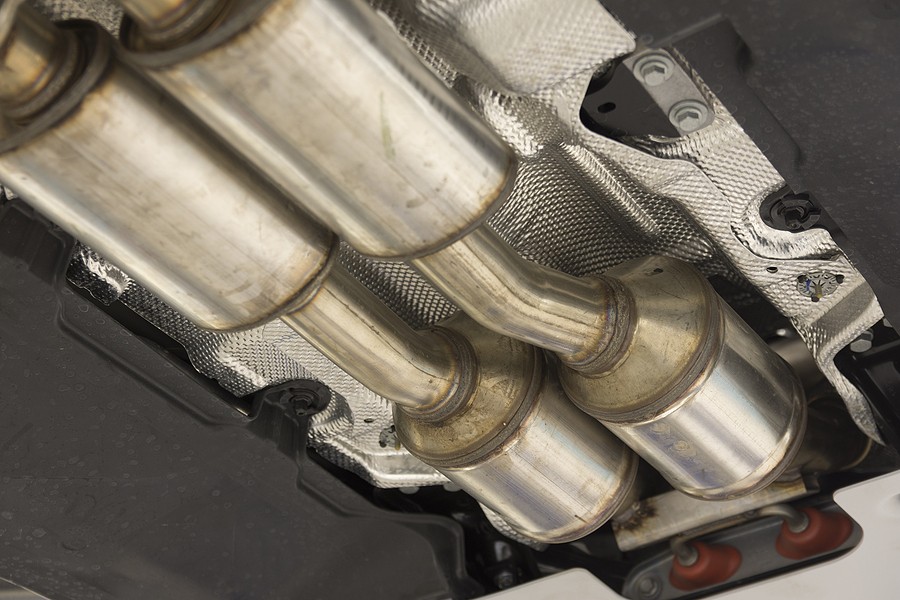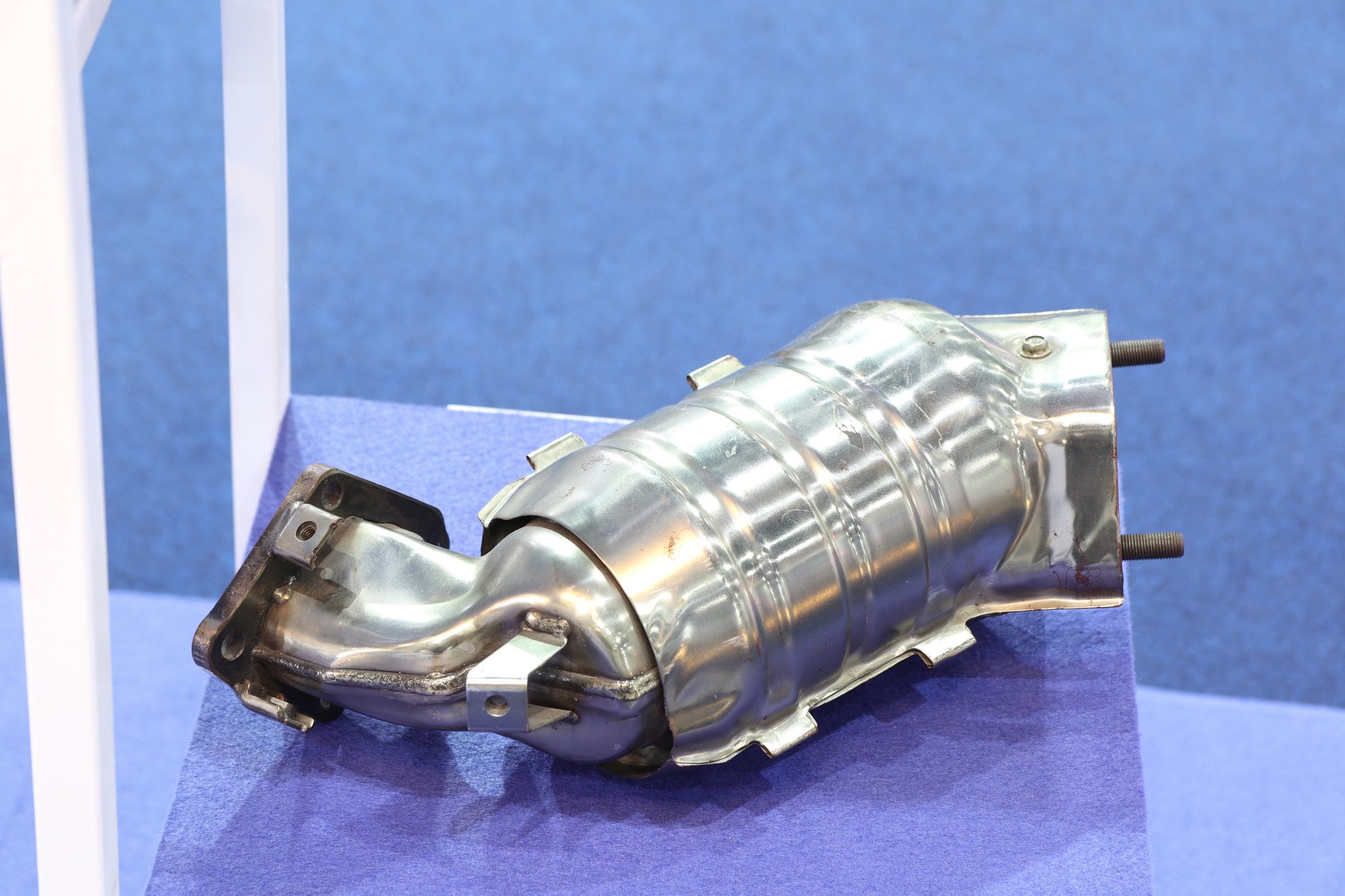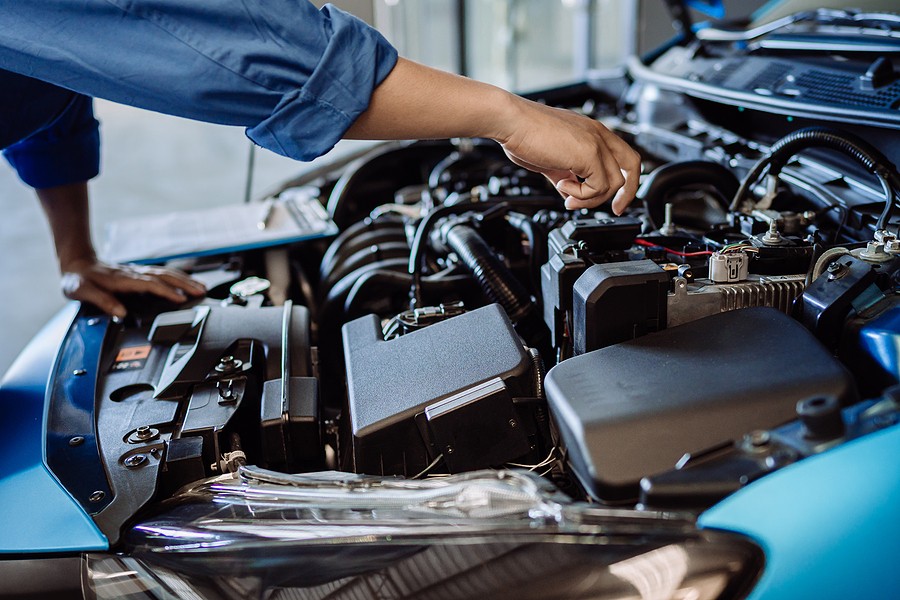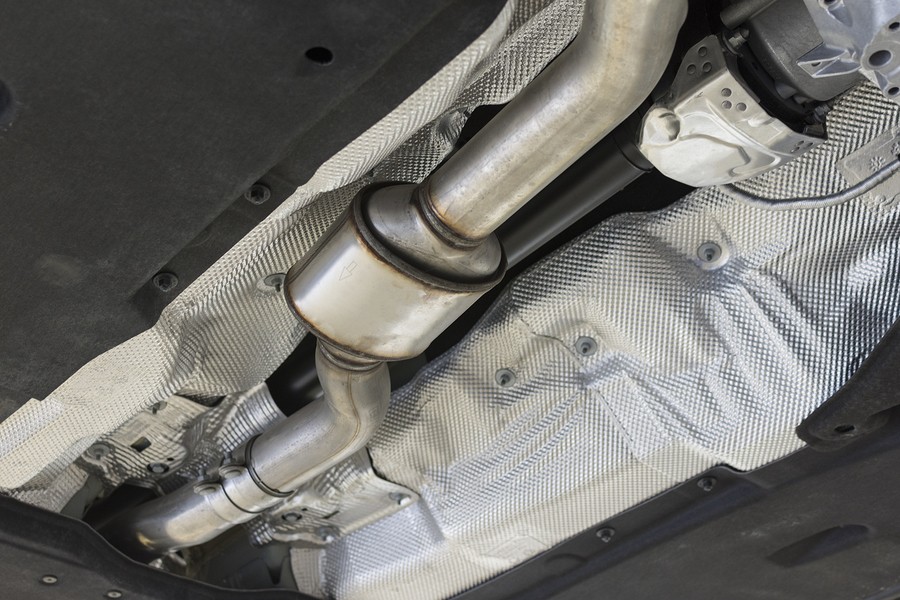If you're wondering “how to know if my catalytic converter is stolen,” watch for these symptoms:
- Loud noises
- Poor vehicle performance
- Dashboard warning lights
- Visual inspection
If you've been noticing the auto news recently, you've potentially heard about the catalytic converter theft. Unfortunately, it's becoming a significant trend, leading to stress for people who own certain vehicle brands.
Understanding whether your catalytic converter was stolen is a critical skill set that could help you address the problem immediately and before the thief runs away with the catalytic converter.
This article serves as a detailed guide to help answer the question, “How do I know if my catalytic converter is stolen?” It highlights the main symptoms of a car with a stolen catalytic converter, provides a step-by-step process to confirm, and highlights some recommendations about what must be done next.
Why does the catalytic converter, and why is it common to get stolen?
Before we dig into the details of your question, “How do I know if my catalytic converter is stolen,” you must understand the purpose of this converter in your vehicle and why it's stolen, among all other car parts.
The catalytic converter is responsible for converting harmful gases from the combustion process into less harmful gases suitable for release into the environment without causing significant environmental harm.
Since this converter consists of many precious metals, thieves now focus on stealing it among all other car parts. More specifically, they find cutting the catalytic converter very easy and removing it from the vehicle within minutes.
With that in mind, people are now concerned about their catalytic converters getting stolen, and that's why they've been starting to search for what vehicle brands are getting targeted the most and what needs to be done to address this problem.
How do I know if my catalytic converter is stolen?
Now you have a general idea about the catalytic converter and why people are targeting it for thefts, the next step is to know how to determine whether your car has a stolen catalytic converter.
The following list summarizes the potential symptoms that you will experience if your catalytic converter gets stolen:
1- Loud noises
The first and most obvious symptom indicating that your car lost the catalytic converter is when you hear loud noises from the exhaust. It typically indicates that a vacuum huge vacuum leak led those gases to leave this vehicle in this way.
Therefore, whenever you notice these noises, you should check on the car and determine whether it's related to a lost or stolen catalytic converter or something else. Regardless of the content of this problem, it would be best if you addressed it as soon as possible because it's linked to something happening internally in your vehicle.
2- Poor vehicle performance
If you cannot determine the loud noises because your vehicle mostly makes these noises for other reasons, the other thing you need to look for is the vehicle's performance. Typically, your vehicle performance will be reduced significantly with a stolen catalytic converter.
In other words, if you tried hitting the gas pedal, you'll see that your card is not responding fast and is not producing the required energy because there is this hole in the location of the catalytic converter.

3- Dashboard warning lights
Depending on your vehicle type, sometimes you might notice dashboard warning lights associated with the catalytic converter. In that case, you should notice what's happening and respond immediately to these warning lines because they are just the way for your car to communicate with you and bring your attention to internal problems.
The more you ignore the warning lights, the more things get out of hand. In other words, even if the warning lights are not related to a stolen catalytic converter, if you address them as soon as possible, you'll most likely be able to fix your car without needing to replace major components.
Therefore, you must never ignore any warning lights on the dashboard, even though they might be related to a simple problem, because they might also be related to a significant issue.
4- Visual inspection
Finally, if you can't identify any of the mentioned symptoms, you can visually inspect and look underneath your car. Typically, a stolen catalytic converter would leave a hole in the bottom of the car where the catalytic converter was located.
You'll see that somebody has cut through the exhaust tube and removed the catalytic converter. Sometimes, you might even see something hanging underneath the car, indicating that something was cut recently.

Steps to check for a stolen catalytic converter
If you suspect that your catalytic converter was stolen, some steps to check will help you confirm that issue. Let's take a closer look below:
- Look underneath the vehicle for signs of any metal cuts or missing components
- Examine the catalytic converter and see if it was removed or is still there
- Look at the exhaust systems for any symptoms of potential noticeable cuts
- Check your security footage if applicable

What to do if your catalytic converter is stolen?
You must act immediately if you confirm that your car catalytic converter was stolen. The first thing you need to do is to follow these simple steps by automotive experts:
1- Contact the police
The first thing you need to do is to contact the police as soon as possible. This will not be a solution for finding the catalytic converter, especially if the thief has already run away. However, it can be a way to inform the neighborhood about this incident because it could be just a starting point for people to come and steal the other converters from the other vehicles.
If you've installed tracking devices on your car's catalytic converter camera, your police might be able to track down the thief and hopefully find your catalytic converter. However, this might be a long process and take a long time.
2- File an insurance claim
Once you have informed the police department, the next step is to contact your insurance policy. You need to file a claim indicating that your catalytic converter was stolen. Remember that giving you a new catalytic converter or any payment depends on your insurance type.
In other words, if you don't have a premium or a good insurance policy, you'll most likely need to pay out of pocket to fix the catalytic converter or install a new one. You might want to reconsider your insurance policy if you're driving a good car and are worried about a stolen kettled converter.
3- Consider prevention measures
Finally, suppose you live in an area where you are very concerned about somebody stealing your catalytic converter or even if you're driving a vehicle that is a target for those who are searching for the catalytic converter. In that case, you might want to consider some preventive measures that we will highlight in the following sections.

How to prevent catalytic converter theft?
The following list provides you with some preventive measures that you might want to consider if you're living in an area where there are high chances of catalytic converters getting stolen:
- Install a catalytic converter shield or protective
- Park in a safe area and consider parking inside
- Install security cameras and put signs indicating that
- Add alarm devices to the location of the catalytic converter
- Mark your converter with a unique identifier
- Consider upgrading your insurance policy

How do I know if my catalytic converter is stolen? Final thoughts
The catalytic converter is a core component in your car that was a target for recent thefts, considering the precious metals it has. Unfortunately, with a reported number of catalytic converters, people are concerned that their converters are stolen.
This article summarizes the main symptoms that help you identify whether your car's catalytic converter was stolen. It also provides you with some recommended measures to take if you confirm that your conversion was stolen, along with recommendations to prevent this issue from happening in the first place.
If you end up with a vehicle with a lost scheduled converter and you think it's not worth installing a new one, it could be perfect timing for selling it. Are you concerned about who's going to accept this car? Call Cash Cars Buyer at 773-791-4363. Get your instant offer today!
If you're interested in similar posts, we highly encourage you to visit our blog by clicking here.



